Opinion & Analysis
The 23 players who can win the Masters
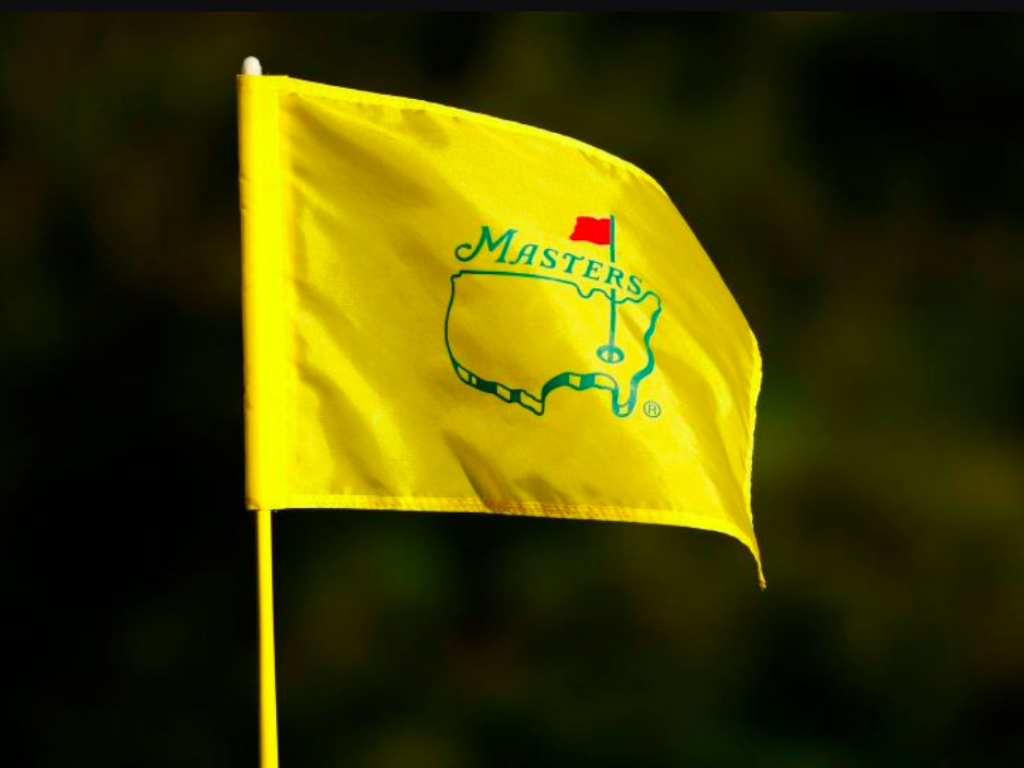
Each year for the Masters, I create a filtering process to help determine the players who are most likely to win the green jacket based on criteria that have strongly predicted outcomes at Augusta. I usually get the list down to roughly 20-25 players.
Last year, Dustin Johnson was one of my 21 players who could win the Masters. Dustin was at 9/1 odds. The other top finishers, like Cameron Smith and Sung Jae Im, were filtered out unlike previous years where players that were in contention were typically shortlisted. My theory on that is that due to the tournament being played in November, the course was not playing as firm and as fast as it normally does, and that allowed players who typically do not get through my filter to get into contention.
Before I discuss my picks for this year’s Masters, I want to go over what I call the “critical holes” for Augusta National. The critical holes in any tournament are the ones where the top finishers typically gain the most strokes on the field, as well as where the greatest deviation in scores exist. One of the interesting aspects about critical holes is that they often change over time due to changes in the course conditions, course design or a change in player strategy, which can create a smaller deviation in scores.
This year, the projected critical holes are No. 8, 13, 14, and 15.
The 15th hole, Firethorn, should be considered the most pivotal hole on the course as over the last five Masters the top finishers in the event have gained 0.391 strokes per round on the hole.
Moving on to the tournament, I filtered out the amateurs and all first-time professional attendees. The Masters has only been won once by a first-time attendee: Fuzzy Zoeller in 1979 and Gene Sarazen in the inaugural event
- Joe Long (a)
- Robert MacIntyre
- Carlos Ortiz
- Charles Osborne (a)
- Tyler Strafaci (a)
- Will Zalatoris
Despite being first-time invitees, the data likes both Ortiz and Zalatoris as they would have gotten through all of the other filters to be selected as players that could win the Masters.
I also filtered out eight past champions I do not believe can contend at Augusta National anymore
- Fred Couples
- Bernhard Langer
- Sandy Lyle
- Larry Mize
- Jose Maria Olazabal
- Vijay Singh
- Mike Weir
- Ian Woosnam
The Zach Johnson debate
Every year I do my Masters picks, it’s always pointed out that I do not pick former Masters Champion Zach Johnson due to his lack of length off the tee. Augusta National greatly favors long-ball hitters. They can play the par 5s more like par 4s, and typically the longer hitters can also hit the ball higher so they can get their long approach shots to hold the green more easily.
When Johnson won the Masters in 2007, the event featured record-low temperatures in the mid-40s and wind gusts of 33 mph. This made it very hard for any player to reach the par 5s in two shots and allowed Johnson to get into a wedge contest on the par 5s, his strength.
This week the forecast is calling for high 70’s to low 80’s with winds topping out at only 10 mph. There are some scattered showers in the forecast that may soften up the greens and give shorter hitters more of a chance to win.
But I believe that it will not be enough to take the advantage away from the longer hitters.
Therefore I filtered out the following players.
- Abraham Ancer
- Brian Gay
- Brian Harman
- Mackenzie Hughes
- Zach Johnson
- Kevin Kisner
- Matt Kuchar
- Francesco Molinari
- Kevin Na
- C.T. Pan
- Ian Poulter
- Patrick Reed
- Webb Simpson
- Henrik Stenson
- Robert Streb
- Michael Thompson
- Brendon Todd
A part of the game that is just as critical as distance is the trajectory height a player can create. Last year, I filtered out four players for hitting the ball too low. Out of those four players, the best finish was Patrick Reed at T10. I use a combination of max height, carry distance, and launch angle to determine if the following players hit the ball too low to win at Augusta.
- Daniel Berger
- Christian Bezuidenhout
- Patrick Cantlay
- Cameron Champ
- Harris English
- Matthew Fitzpatrick
- Lanto Griffin
- Jim Herman
- Matt Jones
- Sebastian Munoz
- Victor Perez
- Xander Schauffele
- Bernd Wiesberger
- Lee Westwood
Since the inauguration of the event, there have only been two winners of the Masters that have previously never made the cut: Fuzzy Zoeller in 1979 and Gene Sarazen in 1936. Let’s filter them out as well.
- Max Homa
- Jason Kokrak
- Joaquin Niemann
- Hudson Swafford
- Matthew Wolff
I will also filter out the players who missed the cut at San Antonio. Historically, players that miss the cut the week prior have a substantially lower likelihood of winning the following week compared to the players that made the cut in the previous week or did not play at all.
- Tony Finau
- Phil Mickelson
- Danny Willett
Lastly, I have filtered out the weak performers from the “Red Zone,” approach shots from 175-225 yards. While Augusta is known for its greens, the winners are determined mostly by the quality of their approach shots throughout the event. In fact, 11 of the last 12 champions have hit at least 49 greens in regulation during the week.
- Jason Day
- Tommy Fleetwood
- Dylan Frittelli
- Billy Horschel
- Brooks Koepka
- Martin Laird
- Scottie Scheffler
- Charl Schwartzel
- Adam Scott
- Cameron Smith
- Jimmy Walker
- Matt Wallace
That leaves the following 23 players who can win the Masters:
- Paul Casey (45/1)
- Stewart Cink (450/1)
- Corey Conners (80/1)
- Bryson DeChambeau (11/1)
- Sergio Garcia (50/1)
- Tyrrell Hatton (45/1)
- Viktor Hovland (33/1)
- Sungjae Im (40/1)
- Dustin Johnson (9/1)
- Si Woo Kim (125/1)
- Marc Leishman (110/1)
- Shane Lowry (110/1)
- Hideki Matsuyama (45/1)
- Rory McIlroy (18/1)
- Collin Morikawa (30/1)
- Louis Oosthuizen (75/1)
- Ryan Palmer (150/1)
- Jon Rahm (12/1)
- Justin Rose (80/1)
- Jordan Spieth (11/1)
- Justin Thomas (12/1)
- Bubba Watson (55/1)
- Gary Woodland (150/1)
Here are my personal top-10 picks
- Paul Casey (45/1)
- Corey Conners (80/1)
- Bryson Dechambeau (11/1)
- Sergio Garcia (50/1)
- Viktor Hovland (33/1)
- Dustin Johnson (9/1)
- Rory McIlroy (18/1)
- Collin Morikawa (30/1)
- Jon Rahm (12/1)
- Jordan Spieth (11/1)
Opinion & Analysis
The 2 primary challenges golf equipment companies face

As the editor-in-chief of this website and an observer of the GolfWRX forums and other online golf equipment discourse for over a decade, I’m pretty well attuned to the grunts and grumbles of a significant portion of the golf equipment purchasing spectrum. And before you accuse me of lording above all in some digital ivory tower, I’d like to offer that I worked at golf courses (public and private) for years prior to picking up my pen, so I’m well-versed in the non-degenerate golf equipment consumers out there. I touched (green)grass (retail)!
Complaints about the ills of and related to the OEMs usually follow some version of: Product cycles are too short for real innovation, tour equipment isn’t the same as retail (which is largely not true, by the way), too much is invested in marketing and not enough in R&D, top staffer X hasn’t even put the new driver in play, so it’s obviously not superior to the previous generation, prices are too high, and on and on.
Without digging into the merits of any of these claims, which I believe are mostly red herrings, I’d like to bring into view of our rangefinder what I believe to be the two primary difficulties golf equipment companies face.
One: As Terry Koehler, back when he was the CEO of Ben Hogan, told me at the time of the Ft Worth irons launch, if you can’t regularly hit the golf ball in a coin-sized area in the middle of the face, there’s not a ton that iron technology can do for you. Now, this is less true now with respect to irons than when he said it, and is less and less true by degrees as the clubs get larger (utilities, fairways, hybrids, drivers), but there remains a great deal of golf equipment truth in that statement. Think about it — which is to say, in TL;DR fashion, get lessons from a qualified instructor who will teach you about the fundamentals of repeatable impact and how the golf swing works, not just offer band-aid fixes. If you can’t repeatably deliver the golf club to the golf ball in something resembling the manner it was designed for, how can you expect to be getting the most out of the club — put another way, the maximum value from your investment?
Similarly, game improvement equipment can only improve your game if you game it. In other words, get fit for the clubs you ought to be playing rather than filling the bag with the ones you wish you could hit or used to be able to hit. Of course, don’t do this if you don’t care about performance and just want to hit a forged blade while playing off an 18 handicap. That’s absolutely fine. There were plenty of members in clubs back in the day playing Hogan Apex or Mizuno MP-32 irons who had no business doing so from a ballstriking standpoint, but they enjoyed their look, feel, and complementary qualities to their Gatsby hats and cashmere sweaters. Do what brings you a measure of joy in this maddening game.
Now, the second issue. This is not a plea for non-conforming equipment; rather, it is a statement of fact. USGA/R&A limits on every facet of golf equipment are detrimental to golf equipment manufacturers. Sure, you know this, but do you think about it as it applies to almost every element of equipment? A 500cc driver would be inherently more forgiving than a 460cc, as one with a COR measurement in excess of 0.83. 50-inch shafts. Box grooves. And on and on.
Would fewer regulations be objectively bad for the game? Would this erode its soul? Fortunately, that’s beside the point of this exercise, which is merely to point out the facts. The fact, in this case, is that equipment restrictions and regulations are the slaughterbench of an abundance of innovation in the golf equipment space. Is this for the best? Well, now I’ve asked the question twice and might as well give a partial response, I guess my answer to that would be, “It depends on what type of golf you’re playing and who you’re playing it with.”
For my part, I don’t mind embarrassing myself with vintage blades and persimmons chasing after the quasi-spiritual elevation of a well-struck shot, but that’s just me. Plenty of folks don’t give a damn if their grooves are conforming. Plenty of folks think the folks in Liberty Corner ought to add a prison to the museum for such offences. And those are just a few of the considerations for the amateur game — which doesn’t get inside the gallery ropes of the pro game…
Different strokes in the game of golf, in my humble opinion.
Anyway, I believe equipment company engineers are genuinely trying to build better equipment year over year. The marketing departments are trying to find ways to make this equipment appeal to the broadest segment of the golf market possible. All of this against (1) the backdrop of — at least for now — firm product cycles. And golfers who, with their ~15 average handicap (men), for the most part, are not striping the golf ball like Tiger in his prime and seem to have less and less time year over year to practice and improve. (2) Regulations that massively restrict what they’re able to do…
That’s the landscape as I see it and the real headwinds for golf equipment companies. No doubt, there’s more I haven’t considered, but I think the previous is a better — and better faith — point of departure when formulating any serious commentary on the golf equipment world than some of the more cynical and conspiratorial takes I hear.
Agree? Disagree? Think I’m worthy of an Adam Hadwin-esque security guard tackle? Let me know in the comments.
@golfoncbs The infamous Adam Hadwin tackle ? #golf #fyp #canada #pgatour #adamhadwin ? Ghibli-style nostalgic waltz – MaSssuguMusic
Podcasts
Fore Love of Golf: Introducing a new club concept

Episode #16 brings us Cliff McKinney. Cliff is the founder of Old Charlie Golf Club, a new club, and concept, to be built in the Florida panhandle. The model is quite interesting and aims to make great, private golf more affordable. We hope you enjoy the show!
Opinion & Analysis
On Scottie Scheffler wondering ‘What’s the point of winning?’

Last week, I came across a reel from BBC Sport on Instagram featuring Scottie Scheffler speaking to the media ahead of The Open at Royal Portrush. In it, he shared that he often wonders what the point is of wanting to win tournaments so badly — especially when he knows, deep down, that it doesn’t lead to a truly fulfilling life.
View this post on Instagram
“Is it great to be able to win tournaments and to accomplish the things I have in the game of golf? Yeah, it brings tears to my eyes just to think about it because I’ve literally worked my entire life to be good at this sport,” Scheffler said. “To have that kind of sense of accomplishment, I think, is a pretty cool feeling. To get to live out your dreams is very special, but at the end of the day, I’m not out here to inspire the next generation of golfers. I’m not out here to inspire someone to be the best player in the world, because what’s the point?”
Ironically — or perhaps perfectly — he went on to win the claret jug.
That question — what’s the point of winning? — cuts straight to the heart of the human journey.
As someone who’s spent over two decades in the trenches of professional golf, and in deep study of the mental, emotional, and spiritual dimensions of the game, I see Scottie’s inner conflict as a sign of soul evolution in motion.
I came to golf late. I wasn’t a junior standout or college All-American. At 27, I left a steady corporate job to see if I could be on the PGA Tour starting as a 14-handicap, average-length hitter. Over the years, my journey has been defined less by trophies and more by the relentless effort to navigate the deeply inequitable and gated system of professional golf — an effort that ultimately turned inward and helped me evolve as both a golfer and a person.
One perspective that helped me make sense of this inner dissonance around competition and our culture’s tendency to overvalue winning is the idea of soul evolution.
The University of Virginia’s Division of Perceptual Studies has done extensive research on reincarnation, and Netflix’s Surviving Death (Episode 6) explores the topic, too. Whether you take it literally or metaphorically, the idea that we’re on a long arc of growth — from beginner to sage elder — offers a profound perspective.
If you accept the premise literally, then terms like “young soul” and “old soul” start to hold meaning. However, even if we set the word “soul” aside, it’s easy to see that different levels of life experience produce different worldviews.
Newer souls — or people in earlier stages of their development — may be curious and kind but still lack discernment or depth. There is a naivety, and they don’t yet question as deeply, tending to see things in black and white, partly because certainty feels safer than confronting the unknown.
As we gain more experience, we begin to experiment. We test limits. We chase extreme external goals — sometimes at the expense of health, relationships, or inner peace — still operating from hunger, ambition, and the fragility of the ego.
It’s a necessary stage, but often a turbulent and unfulfilling one.
David Duval fell off the map after reaching World No. 1. Bubba Watson had his own “Is this it?” moment with his caddie, Ted Scott, after winning the Masters.
In Aaron Rodgers: Enigma, reflecting on his 2011 Super Bowl win, Rodgers said:
“Now I’ve accomplished the only thing that I really, really wanted to do in my life. Now what? I was like, ‘Did I aim at the wrong thing? Did I spend too much time thinking about stuff that ultimately doesn’t give you true happiness?’”
Jim Carrey once said, “I think everybody should get rich and famous and do everything they ever dreamed of so they can see that it’s not the answer.”
Eventually, though, something shifts.
We begin to see in shades of gray. Winning, dominating, accumulating—these pursuits lose their shine. The rewards feel more fleeting. Living in a constant state of fight-or-flight makes us feel alive, yes, but not happy and joyful.
Compassion begins to replace ambition. Love, presence, and gratitude become more fulfilling than status, profits, or trophies. We crave balance over burnout. Collaboration over competition. Meaning over metrics.
Interestingly, if we zoom out, we can apply this same model to nations and cultures. Countries, like people, have a collective “soul stage” made up of the individuals within them.
Take the United States, for example. I’d place it as a mid-level soul: highly competitive and deeply driven, but still learning emotional maturity. Still uncomfortable with nuance. Still believing that more is always better. Despite its global wins, the U.S. currently ranks just 23rd in happiness (as of 2025). You might liken it to a gifted teenager—bold, eager, and ambitious, but angsty and still figuring out how to live well and in balance. As much as a parent wants to protect their child, sometimes the child has to make their own mistakes to truly grow.
So when Scottie Scheffler wonders what the point of winning is, I don’t see someone losing strength.
I see someone evolving.
He’s beginning to look beyond the leaderboard. Beyond metrics of success that carry a lower vibration. And yet, in a poetic twist, Scheffler did go on to win The Open. But that only reinforces the point: even at the pinnacle, the question remains. And if more of us in the golf and sports world — and in U.S. culture at large — started asking similar questions, we might discover that the more meaningful trophy isn’t about accumulating or beating others at all costs.
It’s about awakening and evolving to something more than winning could ever promise.


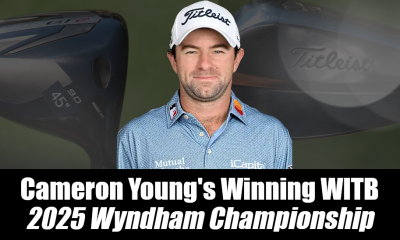





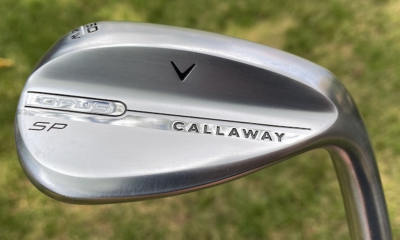

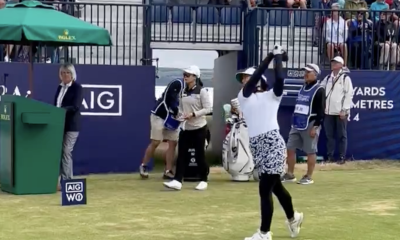

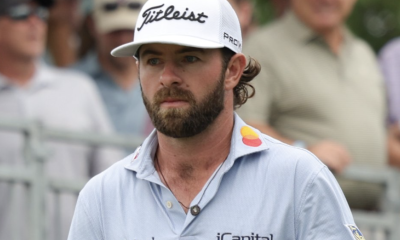







Garrett
Apr 13, 2021 at 12:13 pm
Next year Ill just put 20 on each of those 23 players and there’s no way i can lose!!
Joel
Apr 11, 2021 at 10:04 pm
Are we ever going to give this guy the credit he deserves? Holy moly. So many years of getting this right. I even told me buddy that this was the year he’d finally be wrong (I thought Schauffle would win) but nope.
Huge congrats to both Hideki and R3J.
Bruce Gordon
Apr 7, 2021 at 8:01 pm
Wrong. Lee Westwood will win this year, JT is 2nd.
TimmyChangas
Apr 9, 2021 at 3:28 am
This aged so poorly and quickly
kevin
Apr 7, 2021 at 9:07 am
jon rahm is due
Gordy
Apr 7, 2021 at 8:17 am
I think using trajectory is pretty good idea to filter out golfers. As someone who plays on a course that is very hilly like Augusta National, how high you hit your ball off the drives(especially up hill) really plays a factor. Or even down hill allows you to roll out even further. Clear advantage for folks who hi it higher and carry it further.
Evan
Apr 6, 2021 at 10:30 am
Reed not long enough?! He’s longer than plenty of your potential winners.
Richie Hunt
Apr 6, 2021 at 2:00 pm
He’s lost considerable amount of distance this year. He’s ranked 150th in Adjusted Driving Distance on Measured Drives (where they use driver). He’s also hitting the ball much lower.
Evan
Apr 6, 2021 at 3:10 pm
Thanks Rich, that’s surprising – wouldn’t of put him down as a shorter hitter. Still, he’s a winner for sure and I think he’s got a chance.
Richie Hunt
Apr 6, 2021 at 4:02 pm
Reed currently ranks quite low in Adjusted Driving Distance for measured drives. His speed has slowed down considerably this year and he’s hitting the ball much lower.
Phil Underhill
Apr 6, 2021 at 9:53 am
What club are you basing trajectory from? – Presumably driver. Which I think is a mistake, plenty of players hit their irons high but choose to play a lower lofted driver (or choose to hit with a negative angle of attack). I certainly don’t think hitting the ball low off of the tee is a disadvantage there
Richie Hunt
Apr 6, 2021 at 2:02 pm
It is based off the driver using carry distance, launch angle and max height to determine. I can just say that ever since I’ve been doing it I’ve had tremendous luck with it. If the conditions called for rain I would not use it for a filter.
Richie Hunt
Apr 6, 2021 at 4:04 pm
Here’s a list of the players I’ve filtered out for a low trajectory since I started doing this column in 2013. 50 players in total, 23 (46%) went on to miss the cut. Only 4 (8%) finished in the top-10 and only 1 (Jimenez in 2014) finished in the top-5.
https://docs.google.com/spreadsheets/d/1GefucgTSKwoBSvTnsqY5KNBgRWAKz21fy5S4w3EHIUA/edit?usp=sharing
freeze
Apr 6, 2021 at 8:28 am
Collin Morikawa is 126 in distance, why wasnt he eliminated? CT Pan out drives him and he was. The red zone isnt 175-225, its a 100 and in. Your list is a joke, you didnt even follow your own metrics
Ryan
Apr 6, 2021 at 5:35 am
Do you use solely PGA tour data? Would be interesting to see if there is less predictive power for guys who play primarily on a different tour, which means they have less PGA tour rounds in stats. The more I think about this the more it makes sense though. Great stuff.
jgpl001
Apr 6, 2021 at 3:52 am
Cink really? More chance of me winning this week, no disrespect to Cink who was a really good player, but he is long past his prime and totally incapable of competing at this level anymore
Richie Hunt
Apr 6, 2021 at 2:13 pm
Cink was the biggest surprise and him winning would make him the oldest winner in major championship history. However I don’t use age as a filter as players that get thru the filters, regardless of age, have routinely gotten into contention. The reason why older guys like Cink don’t get thru the filter very often is that when they get that age they tend to not hit the ball far enough, high enough or basically just aren’t very good anymore.
Colin
Apr 6, 2021 at 3:02 am
Unclear why Molinari “can’t win” given that he led in the final round in 2019 and has improved his driving distance considerably in the past 3 years or so. Poor form aside, does he *really* have less chance than Cink??
Christian R
Apr 6, 2021 at 7:11 am
I agree.
Cink can just loop for Frankie. Maybe.
Richie Hunt
Apr 6, 2021 at 2:17 pm
The problem with looking at the driving distance metrics on the Tour Web site is that they are not adjusted for schedule. Playing a course like Phoenix where the ball travels far is different than playing a course like Pebble Beach where the ball doesn’t travel nearly as far. I base my distance filter on Adjusted Driving Distance which factors in schedule and Molinari is *shorter* this year than he was 3 years ago. 3 year ago I also shortlisted Molinari and had him in my top-10. But this year he didn’t get thru the distance filter.
I got this complaint a few years ago about Paul Casey who didn’t make it thru the trajectory filter despite playing well. And then he badly missed the cut.
TacklingDummy
Apr 5, 2021 at 10:26 pm
Interesting reasons for filtering out. Personally, that wouldn’t be by criteria for filtering players. I would add to the possible win list along with most of the 23 players: Jason Day, Tommy Fleetwood, Billy Horschel, Brooks Koepka, Charl Schwartzel, Adam Scott, Xander Schauffele, Lee Westwood, Matt Kuchar, Francesco Molinari, Kevin Na, Patrick Reed, Webb Simpson, Henrik Stenson
It is the Masters. There are so many top players that just find another gear at the Masters no matter how they have been playing of late.
Richie Hunt
Apr 5, 2021 at 11:46 pm
The filters are based on statistics and past trends of the last 25 Masters tournaments. They are not subjective filters, but objective filters. A player that did get filtered may overcome what based on history and trends has typically projected them to do poorly.
DJ
Apr 5, 2021 at 6:45 pm
man you have some terrible short game (putting included)players in….si woo, Hideki, Hovland
Richie Hunt
Apr 5, 2021 at 11:44 pm
The Masters isn’t a putting course. It’s an approach shot play course. The long hitters can afford themselves some shorter shots into the green, but if their iron play is poor they are going to have tough road ahead of them even if they are hitting short approaches into the green. Short Game around the green usually doesn’t come into play, but if you’re not dead last and you strike the ball well you’re not going to have to worry about it. I think the course plays firm with a small breeze and will favor the longer hitters in the end.
TWick
Apr 12, 2021 at 4:42 pm
This aged poorly.
Vic Hardy
Apr 5, 2021 at 5:19 pm
I’m not a golfer but live in Augusta and always watch the Masters, even attended it once.
This is interesting from a statistician’s perspective. If I look at the world rankings, both Johnson and Rory are I believe in the top 10. Spieth is down in the 60’s but just had his first win in 4 years. Bryson is ripe for a win.
I’d put my money on Johnson.
paul
Apr 5, 2021 at 1:01 pm
Connors hits it so low….how did make it through?
Richie Hunt
Apr 5, 2021 at 1:24 pm
Connors currently ranks 136th out of 219 players in Apex Height and 121st in Carry Distance. He’s basically at the threshold of trajectory.
Dpd901
Apr 5, 2021 at 12:37 pm
Gene Sarazen didn’t win the first Augusta National Invitational, Horton Smith did. Sarazen won the 2nd
Jake
Apr 5, 2021 at 9:31 pm
Sarazen won the first Masters.
Prior to that it was Jones’ white man only event.
Chuck
Apr 5, 2021 at 12:18 pm
Did you have Danny Willett as a possible in 2016?
He’s a past champion, a top-100 OWGR player, and has shown at least some form this year (despite a MC last week). Yet you don’t even have him mentioned.
Eric
Apr 5, 2021 at 12:38 pm
Actually, he included Willett in the “Missed cut at San Antonio” group…
Richie Hunt
Apr 5, 2021 at 1:28 pm
I had Willett shortlisted in 2016. And Willett was filtered out for MC’ing at San Antonio.